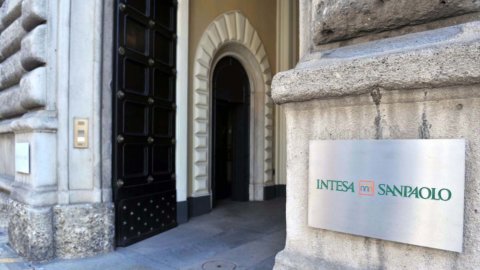Many analysts had taken into account that the euro would retrace its steps. And so it was. The single currency has not suffered any collapse since Friday, on the contrary it has reacted positively by reversing its course and returning above the quota 1,27. After the depreciation that brought the single currency to annual lows, the euro in fact triggered a bullish path that brought it back, in the late morning, to a level 1,2770.
There was no particularly significant data to indicate an improvement in the macroeconomic situation of the Old Continent, with the exception of the now continuous and discounted fall in the auctions of German securities, which are in line with the positive data on the growth of the German economy, equal to 0,5% in the first quarter of 2012: investors, when not fleeing to other shores (Swiss franc, dollar, gold), invest in Berlin bonds.
The latest auction, which went through this morning, placed almost three billion "Bubills" on the market, at an average price of 99,97, but above all with an average income of 0,026%. The demand, excellent, has doubled the supply.
It is, of course, the news from the G8 to restore some confidence in the currency market. During the summit, Merkel's increasingly marginal position prompted the chancellor to soften her tone, suggesting a certain willingness to re-discuss the fiscal compact and Eurobonds, this time in an expansive direction.
The feeling is that governments are converging towards a collaborative plan to adopt pro-growth policies, and there is the belief that nobody really wants to risk Greece's exit from the eurozone.
However, the situation remains very tense: the Spanish banks are still a long way from recovery, with more than 180 billion of non-performing loans which undermine its financial stability. Both in Madrid and in Athens phenomena of bank run which – although not yet beyond the danger level – indicate a still very high perception of risk on the part of operators. The elections in Athens, moreover, they are a heavy unknown.
Germany continues to grow and, despite its decisive weight in advocating austerity policies, continues to represent the only healthy economic reality. So far Berlin has not supported domestic demand, which according to economists could increase exports and consequently the GDP of the European region. Recently, however, wage increases have been approved for eight hundred thousand workers in the metalworking sector, a symptom of greater attention to the problem of continental macroeconomic rebalancing.
The positive signals are starting to weigh on operators' expectations, but in the absence of official announcements from the supranational authorities, it is easy to imagine that, on the currency market, Euro-based trading will continue to be very volatile in the coming days.
The threshold of support, in the area 1,26, is still very close, and the risk of a further decline of the single currency against the dollar is far from averted.





